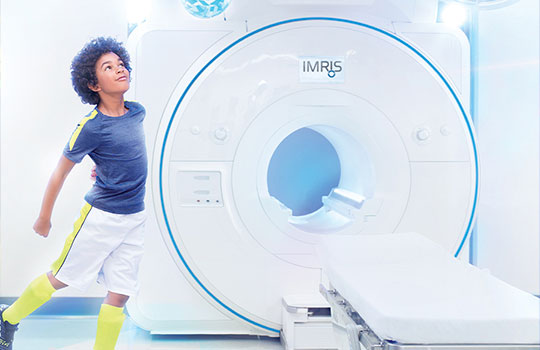Weathering a crisis is tricky business for any company, but it’s not impossible with proper strategy. This is where crisis communication comes in. But what exactly is crisis communication and why is it so important to the survival of your business?
Here’s a primer on crisis communication: what it is and how it can benefit your company in the face of a crisis.
What is crisis communication?
Being honest and hard-working isn’t always enough to mitigate a crisis. Human error, shifting politics, and more can turn an ordinary workday into a mess of damage control. This is where crisis communication comes in.
Crisis communication involves defining and managing the risks connected to the activities of a company, particularly their media relations. It can include rehearsing crisis situations to prevent escalation and ensure effective action. It also prioritizes time – rapid response during a crisis is often the difference between weathering the storm or going down with your ship.
In essence, crisis communication ensures your company is able to survive any PR hurdles that may be thrown their way.
Now you know what crisis communication is, here’s a little on why it’s so important.
Crisis communication helps you prepare
Crisis communication, like any crisis strategy, plays a role in better preparing you for handling a challenge. Rather than reacting blindly to a crisis, your crisis communication strategy empowers you to act intelligently and strategically.
Being prepared for a crisis is far better than being blind-sided by one, as any business owner will tell you. Crisis communication is all about being prepared – developing sound strategies for use in a crisis and allowing you to react quickly and effectively.
It keeps your key messages consistent
We live in a multi-platform age. You’re no longer just communicating with your audience in one or two mediums. Social media, in particular, has closed the gap between you and your customers. This can be a boon for marketing but during a crisis, you’ll find it incredibly stressful.
Keeping your messages consistent across all your information outlets is essential when managing a crisis. You don’t want one employee saying one thing on Instagram while another emails something different.
A crisis communication plan addresses this issue by appointing one or two people to control your messaging. Rather than the whole company scrambling to mitigate damage, your PR is funneled through strategically appointed spokespeople. This ensures your messaging stays consistent, relevant, and effective.
It lets you act quickly
To “get ahead of a crisis” is a saying for a reason. When it comes to crisis management, acting swiftly is one of the best things you can do for your reputation.
In today’s social media age, it’s especially important to stay ahead of a curve when it comes to crisis communication. Delay too much with your messaging and you risk your silence being read as complacency or incompetence.
Effective crisis communication allows you to act fast in the face of a crisis. Because you’ve already set plans in place for the eventuality of a problem, you’re able to react quickly and effectively to any issues.
It allows you to understand your audience
Effective communication means very little if you don’t know who it is you’re speaking to. Understanding your audience is essential when it comes to activities like marketing and sales but did you know it’s critical for crisis management?
A successful crisis communication strategy understands the importance of knowing your audience. It prioritizes your messaging and tailors it specifically to who needs to hear it. Without effective crisis communication, you risk muddying the waters of your messaging and creating tension among your audience.
It allows two-way communication
Consistent messaging is important when it comes to managing a crisis but so is listening to your audience. In many cases, a crisis will involve direct messages from customers, both existing and potential. It’s essential that you don’t ignore these messages.
Crisis communication involves the training and appointing of dedicated spokespeople to handle such communication. It ensures everyone’s on the same page when responding to direct messages and ensures your audience feels listened to and valued.
It identifies your communication channels
Knowing your audience is half the battle, knowing where they’re communicating is just as important. A solid crisis communication strategy identifies the platforms on which your business ought to be operating to help mitigate the fallout from a crisis.
For example, if your business goes viral on Twitter for a problem post, there’s very little point to responding only on your website. Crisis communication prepares you for each potential problem and develops strategies for mitigating each one based on the best communication channel.
Handle your crisis effectively
Crisis communication is an essential strategy for weathering the storm of a business crisis. Whether it’s your reputation or your bottom line on the chopping block, a solid crisis communication strategy can help you come out on top.
Looking for a PR agency in Des Moines, Naperville, or Chicago to help you develop a killer crisis communication strategy? We can do that. Get in touch today.


 The Meaning of MACLYN
The Meaning of MACLYN Our Team
Our Team















 Brand Development
Brand Development Content Creation
Content Creation Graphic Design
Graphic Design Photography
Photography Web Design + Development
Web Design + Development Outsourced B2B Marketing
Outsourced B2B Marketing Strategy
Strategy SEO
SEO Search Engine Marketing
Search Engine Marketing Social Media Management
Social Media Management Content Marketing
Content Marketing Influencer Marketing
Influencer Marketing Videography
Videography Post-Production
Post-Production Screenwriting
Screenwriting Animation
Animation Earned Media
Earned Media Community Relations
Community Relations Crisis Communication
Crisis Communication